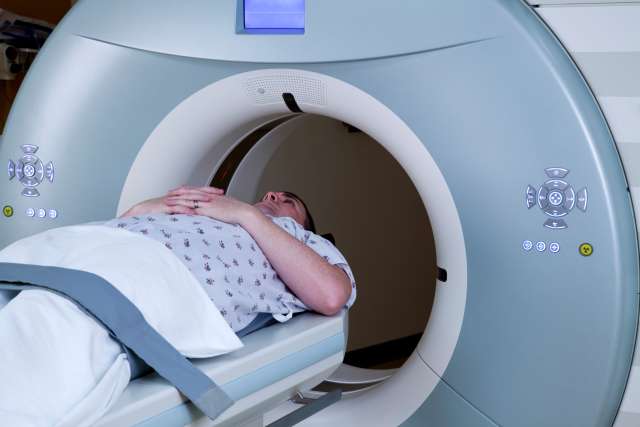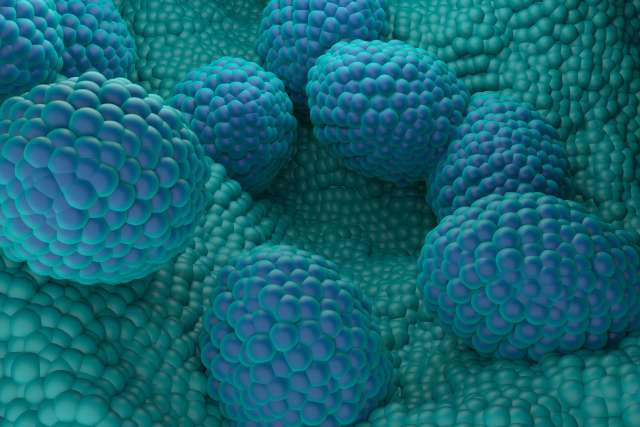Prostate Cancer
With an array of innovative diagnostic and treatment options, UCLA Health offers superior prostate cancer services and care.

Why Choose UCLA Health for Prostate Cancer Care?
The UCLA Health Prostate Cancer Program is part of the Institute of Urologic Oncology at the UCLA Health Jonsson Comprehensive Cancer Center (JCCC). The JCCC has an international reputation for providing the best in experimental and traditional cancer treatments.
Our prostate cancer specialists provide:
Comprehensive, multidisciplinary, compassionate care: The Prostate Cancer Program at UCLA Health offers the latest treatments with personalized, empathetic care.
Innovative diagnostic testing: UCLA's Prostate Cancer Program has been at the forefront of research bringing new biomarkers, imaging (MRI and PSMA PET), and biopsy techniques to improve the accuracy of prostate cancer diagnosis and detection.
Expertise in robotic surgery and the latest treatments: We are leaders in all treatment areas, particularly image-guided robotic surgery, emerging focal therapies, and the most advanced forms of radiation therapy.
Expertise in high-risk patients: While our physicians treat all stages of prostate cancer, we frequently treat patients with complex cases, referred here by other hospitals.
Access to innovative research: Our scientists have been making groundbreaking discoveries for decades. We offer our patients the opportunity to join our pioneering clinical trials.
Superior care, close to home: UCLA Health offers prostate cancer services in many community cancer clinics across the greater Los Angeles region. This means you can receive high-quality care that's convenient for you and close to home.
Our services
From diagnosis to rehabilitation, we offer comprehensive prostate cancer services, including:
Early prostate cancer detection and diagnosis
At UCLA Health, we use state-of-the-art technology to detect cancer in its early stages, when it's most treatable, including:
Prostate-specific antigen (PSA) test: A blood test that checks for elevated levels of a protein made by the prostate called prostate-specific antigen (PSA). This protein is a biomarker for prostate cancer. Biomarkers are subtle changes in genes or proteins that might be a sign of cancer.
4Kscore® and Select MDx: Blood and urinary tests that augment the PSA to help diagnose prostate cancer.
Prostate MRI (magnetic resonance imaging): radiologic examination of the prostate that can detect abnormal lesions that require biopsy.
MRI targeted biopsy: A procedure done transrectally or transperineally using advanced imaging techniques to identify areas of the prostate suspicious for cancer, and then directly sampling the lesion.
Prostate-specific membrane antigen (PSMA) PET scan: An advanced scanning technology that can locate prostate tumors as well as advanced metastases with unprecedented precision.
Genomic testing: Tests such as Decipher and Oncotype Dx are used as needed to stratify the risk of a given tumor in order to aid in clinical decision making.
Cancer genetics
Our Cancer Genetics Program evaluates the potential genetic factors that can increase a man's risk for prostate cancer. Knowing about a specific genetic risk can help doctors more precisely tailor treatments for prostate cancer that are optimal for you.
Prostate cancers we treat
We successfully treat the full range of prostate cancers, including:
- Low risk cancers requiring active surveillance
- Intermediate risk cancers requiring radiation, surgery or focal therapy
- High risk cancers requiring multidisciplinary care and clinical trials
Treatments for prostate cancer
UCLA Health has many options for treating prostate cancer, including:
Active surveillance: A delayed treatment approach that is appropriate for men who have low-risk and slow-growing cancer. Active surveillance includes regular testing and imaging.
Focal therapy: High-intensity focused ultrasound (HIFU) is a procedure that delivers focused sound waves to kill cancer cells on a targeted spot of prostate tissue.
Cryotherapy: A procedure in which the tumor is killed by freezing.
Prostate surgery
Surgery can help cure early-stage prostate cancer that has not spread to surrounding organs. Procedures include:
Radical prostatectomy: The surgical removal of the entire prostate. Surgeons at UCLA Health typically perform this procedure using a minimally invasive, robotic-assisted approach. This type of surgery enables surgeons to preserve sexual function and urinary control.
Lymph node dissection: Removal of the lymph nodes near the prostate. We may use this for men with advanced or recurrent prostate cancer.
Post-operative recovery and holistic care
After prostate surgery, some men experience problems maintaining erections or controlling urine. We offer the following services to help men take back control:
Pelvic floor rehabilitation: Physical therapy for urinary incontinence caused by prostate cancer surgery or radiation.
Pre- and post-prostatectomy rehabilitation: Management by The Men's Clinic at UCLA to prevent and treat erectile dysfunction after prostate cancer surgery.
Radiation therapy
When given in high doses, radiation can damage or kill cancer cells. At UCLA Health, we offer:
Brachytherapy: A procedure that uses radioactive pellets to deliver targeted radiation. The pellets are inserted into the prostate and remain in place for months. Brachytherapy spares healthy tissue by focusing its steady, high-dose radiation more precisely.
External beam radiation therapy: A localized form of high-dose radiotherapy that spares healthy tissues that surround a tumor.
Stereotactic body radiotherapy: A focused radiation treatment delivered over five sessions that uses 3D imaging to target tumors.
Hormone therapy: Medications used to decrease testosterone levels in the body. Prostate cancer feeds off testosterone, so lowering the amount of this hormone can help slow cancer growth. UCLA Health offers the latest form of hormone therapy including the newest oral drugs and anti-androgens, two of which were developed at UCLA.
Chemotherapy: Powerful drugs used in the setting of advanced disease and given intravenously to damage and kill cancer cells.
Provenge®: An FDA-approved cancer vaccine and immunotherapy drug that uses a modified form of a patient's immune cells to recognize and destroy prostate cancer cells.
Our expert team
UCLA Health is home to some of the top prostate cancer specialists in the country.
Contact us
Call to request an appointment with a prostate cancer specialist at UCLA Health.
Find your care
Trust our world-renowned prostate cancer experts to deliver your care.
For more information, connect with a prostate cancer care specialist at .



